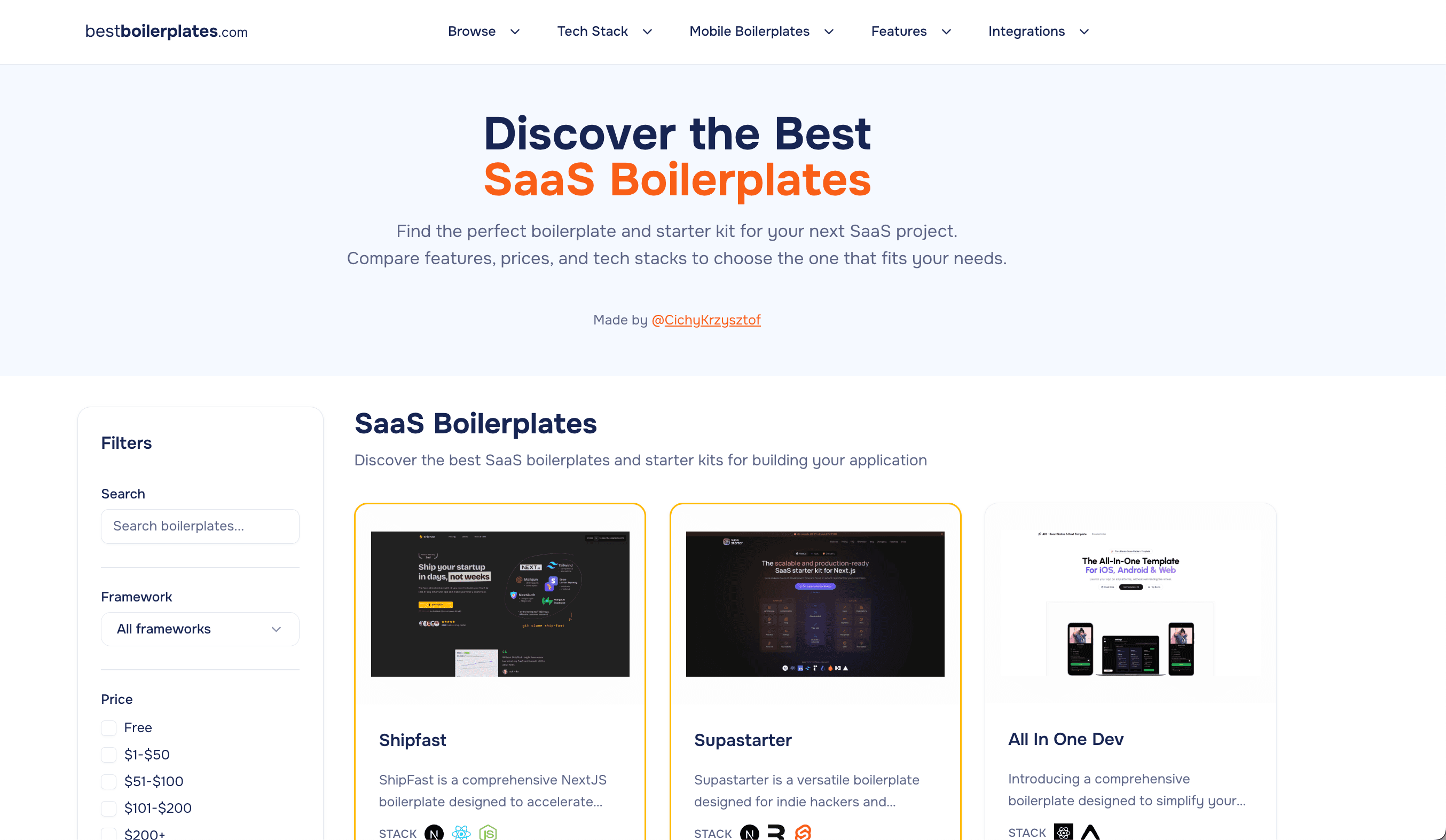AWS Cognito vs. Clerk
AWS Cognito
Amazon Cognito is an identity platform for web and mobile apps. It’s a user directory, an authentication server, and an authorization service for OAuth 2.0 access tokens and AWS credentials. With Amazon Cognito, you can authenticate and authorize users from the built-in user directory, from your enterprise directory, and from consumer identity providers like Google and Facebook.
Clerk
Clerk is a comprehensive user management and authentication platform designed to streamline how developers handle user accounts within web and mobile applications. It offers a suite of embeddable UI components—such as <SignIn/>, <SignUp/>, <UserButton/>, and <UserProfile/>—that integrate seamlessly into your application without redirecting users off-site. These components are fully customizable to match your brand, making the user experience cohesive and frictionless. Under the hood, Clerk provides a robust API and SDKs compatible with modern frameworks like Next.js, Remix, React, and Expo. It handles the entire authentication lifecycle, supporting multifactor authentication (MFA), session management, passwordless sign-in (via magic links or one-time passcodes), and traditional password-based methods with breach detection. The platform also integrates social sign-on (SSO) with over 20 providers, enabling quick user onboarding while adhering to security best practices. Clerk’s securit...
Reviews
Reviews
Reviewed on 2/25/2025
Clerk is a comprehensive authentication and user management platform. It comes with embeddable UIs, APIs and admin dashboards for user management. Clerk offers official SDKs for Next.js, React, JavaScript, Node.js, Remix, Go, Gatsby, and Ruby / Rails. There are many more community SDKs for other frameworks and languages. They have a free tier of 10,000 MAUs and a $25/month Pro tier with $0.02/MAU. Enhanced authentication, with SMS auth, device tracking and revocation, simultaneous sessions and SAML authentication costs additional $100/month. Admin add-on, with user impersonation and enhanced roles is another $100/month.
| Item | Votes | Upvote |
|---|---|---|
| No pros yet, would you like to add one? | ||
| Item | Votes | Upvote |
|---|---|---|
| No cons yet, would you like to add one? | ||
| Item | Votes | Upvote |
|---|---|---|
| No pros yet, would you like to add one? | ||
| Item | Votes | Upvote |
|---|---|---|
| No cons yet, would you like to add one? | ||
Frequently Asked Questions
AWS Cognito and Clerk are both solid choices for user authentication, but they serve different needs. AWS Cognito is a comprehensive identity platform that integrates deeply with other AWS services, making it ideal for applications already within the AWS ecosystem. It supports OAuth 2.0 and federated identities, which is beneficial for enterprises needing robust security and integration with multiple identity providers. Clerk, on the other hand, offers a developer-friendly experience with embeddable UIs and a wide range of SDKs for various frameworks. It also includes advanced features such as SMS authentication, device tracking, and simultaneous sessions. Clerk might be more suitable for projects that prioritize developer experience and have a need for advanced user management features. Pricing is another consideration; Clerk offers a free tier for up to 10,000 MAUs, whereas AWS Cognito's pricing can get complex depending on usage. The choice between the two depends on your specific requirements and existing tech stack.
When it comes to scalability, both AWS Cognito and Clerk offer robust solutions. AWS Cognito is built on AWS infrastructure, which is known for its scalability and reliability. It can handle millions of users and integrates seamlessly with other AWS services, making it a strong choice for large-scale applications. Clerk also offers scalable solutions, particularly for modern web applications. It supports simultaneous sessions and advanced authentication methods, ensuring a smooth experience as your user base grows. However, since Clerk is a relatively newer service compared to AWS Cognito, its long-term scalability in extremely large deployments might still be less proven. For most applications, both solutions will scale effectively, but AWS Cognito might have an edge for extremely large-scale enterprise applications due to its deep integration with AWS's scalable infrastructure.
Amazon Cognito is an identity platform for web and mobile apps. It serves as a user directory, an authentication server, and an authorization service for OAuth 2.0 access tokens and AWS credentials. With Amazon Cognito, you can authenticate and authorize users from the built-in user directory, from your enterprise directory, and from consumer identity providers like Google and Facebook.
Pros of AWS Cognito include its generous free tier, low price per monthly active user, and strong integration with the AWS ecosystem. These features make it a cost-effective and scalable solution for user authentication. However, some users may find the setup and configuration complex if they are not familiar with AWS services.
AWS Cognito can handle authentication from the built-in user directory, enterprise directories, and consumer identity providers like Google and Facebook. This makes it versatile for different types of applications and user bases.
Yes, AWS Cognito is suitable for large-scale applications due to its scalability and integration with the AWS ecosystem. It can handle a high number of users and provides features like multi-factor authentication and encryption for added security.
Yes, AWS Cognito integrates seamlessly with other AWS services such as AWS Lambda, Amazon API Gateway, and Amazon S3. This allows developers to build comprehensive solutions with secure user authentication and data management.
Clerk is a comprehensive user management and authentication platform designed to streamline how developers handle user accounts within web and mobile applications. It offers a suite of embeddable UI components, such as <SignIn/>, <SignUp/>, <UserButton/>, and <UserProfile/>, that integrate seamlessly into applications without redirecting users off-site. Clerk also provides a robust API and SDKs compatible with modern frameworks like Next.js, Remix, React, and Expo.
Clerk includes features such as multifactor authentication (MFA), session management, passwordless sign-in, traditional password-based methods with breach detection, and social sign-on (SSO) with over 20 providers. It also offers advanced multi-tenancy features for B2B SaaS applications, allowing organization-based user management with custom roles and permissions.
Pros of Clerk include its comprehensive suite of embeddable UI components, robust API, and strong security features such as SOC 2 Type 2 certification and CCPA compliance. It also offers a free tier for up to 10,000 monthly active users, making it a scalable solution. However, some cons include the additional costs for enhanced authentication features and admin add-ons, which can add up for larger applications.
Clerk has a strong security posture that includes SOC 2 Type 2 certification and CCPA compliance. It undergoes continuous third-party audits and penetration testing. Additionally, Clerk incorporates fraud prevention measures such as disposable email blocking and machine learning-powered bot detection to reduce spam and abusive sign-ups.
Clerk offers a free tier for up to 10,000 monthly active users. For additional features, there is a Pro tier priced at $25 per month with a cost of $0.02 per additional monthly active user. Enhanced authentication features and admin add-ons are available for an additional $100 per month each.




















